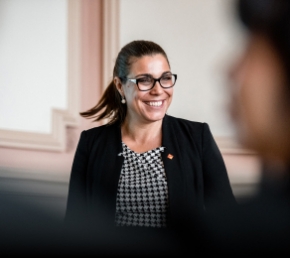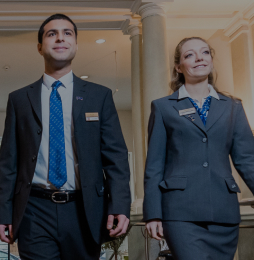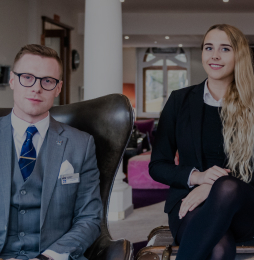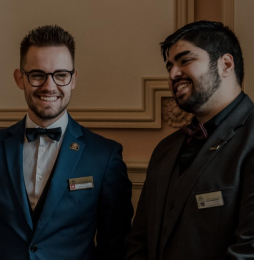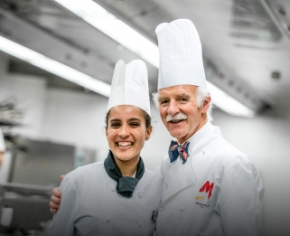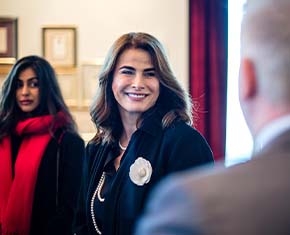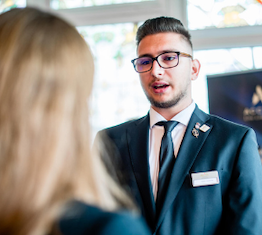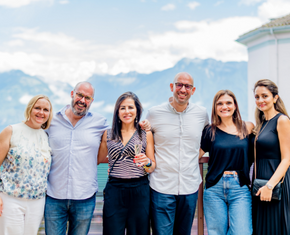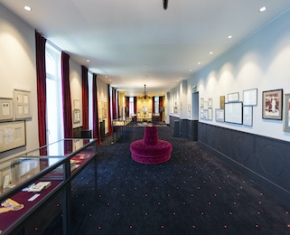- About
- Schools
- Lifelong Education
- News & Events
- Community
#Career advice
Interview tips to help you land your dream job
The key to standing out from the crowd.
We’ve all been there. You hear about a job opportunity that immediately perks your interest. You stay up late polishing your CV and submitting your application. Then you (painstakingly) wait to be called for an interview. With a lot of the preparation behind you, arguably the most important work is still ahead—the interview—so why not use the waiting time to hone your interviewing skills?
César Ritz Colleges Switzerland graduate Andreas Anderson shares his top interview tips for making a great impression and getting the job you want:
Do your research
Being asked to interview is an achievement on its own, so don’t let your hard-earned work to secure an interview go to waste because of a lack of preparation. That’s why it’s important to research the company with whom you are interviewing and come ready to demonstrate that knowledge.
Get to know who they are, what they do, their values, and any interesting facts or recent achievements. Read thoroughly through the company’s website, blog, press releases, and brochures. Search for the company online to see if they have any interesting media coverage.
Perhaps they just launched a new product or service. Maybe they just welcomed a new CEO. Demonstrating knowledge about the details of the company will position you as an informed and enthusiastic candidate and help you to stand out from the crowd.
As much as possible, do your research on the interviewer as well. Perhaps they have a bio on the company’s website or a LinkedIn profile. Any useful information you can gather on their role in the company and their background will help you build connections and form talking points during your interview.
And finally, make sure you understand the scope of the role for which you are applying. Read the job description completely and research any terms you do not understand. It is important to demonstrate your grasp of the role and its responsibilities so you can position yourself as the one best suited to fulfill their needs.
And be honest. If there are areas in which you still need to grow and develop, be open about your limitations while demonstrating a willingness to learn.
Don’t just answer questions, ask them
Most people think an interview is all one-sided. While it’s true the interviewer is leading the conversation and asking the majority of questions, the interviewee should always come prepared to ask a few questions as well. Questions should not include information that could easily be found on the company’s website, but can include things like:
- What are your expectations for this role?
- What opportunities for growth and development are there for employees in the company?
- Where do you see the team and/or company going in the next few years?
- What is the company’s culture like?
In preliminary interviews, you should avoid questions about paid leave, salaries, and perks, unless firstly brought up by the interviewer.
Roleplay with a friend or mentor
One of the best ways to put your newfound knowledge to the test is through roleplaying with a friend or mentor. Ask a trusted contact to sit down with you for a mock interview and offer you constructive feedback on your performance. This gives you the chance to really hone your answers to tough questions and practice selling yourself to the interviewer.
Know your worth
In initial interviews, compensation isn’t always discussed. However, you still need to come prepared in case the conversation comes up. If the interviewer asks you what you expect in terms of compensation, express your desired outcome with confidence.
Follow-up
It’s so important to follow up with the interviewer by email or text shortly after your interview. Thank the interviewer for taking the time to speak with you and for considering you for the role. Reaffirm your interest in the role and how the interviewer can best reach you.
This simple and thoughtful gesture leaves a lasting impression and shows the interviewer you are sincere about getting the job.
For more career advice from Andreas:
3 Ways To Grow Your Professional Network
Andreas Anderson graduated with a Bachelor in International Business in 2013 from César Ritz Colleges Switzerland, and worked his way up from dishwasher to department head in restaurants and 5-star luxury properties in different corners of the world. Today, he is part of the pre-opening team for the world’s largest IKEA store (in the Philippines).
#Career advice

